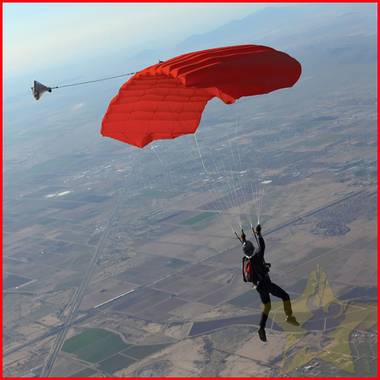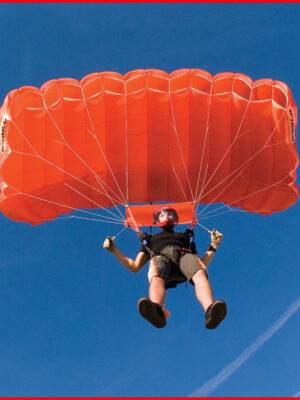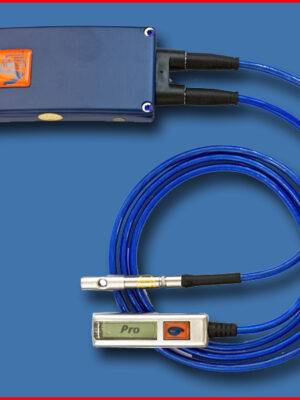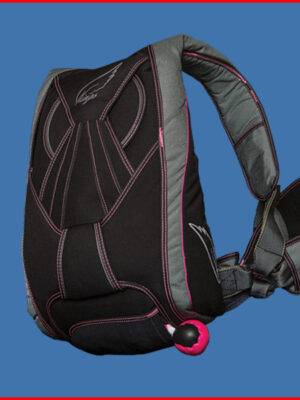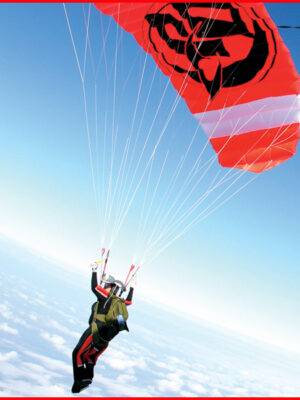Description
| ICARUS Canopies has gone again ONE STEP AHEAD and has designed a state-of-the-art wing that provides fast, accurate and reliable openings as well as unique flight characteristics for a reserve canopy. From the safety and reliability of the opening, you continue your flight under the ICARUS Reserve, with unparalleled flight and landing performance. The ICARUS Reserve meets the industry’s highest requirements for safety and performance – TSO C23d (FAA) and ETSO C23d (EASA).
ICARUS Reserve Characteristics |
| RESERVE – Model | Area (ft2) | Max Allowed Weight (lb) | Span (ft) | Chord (ft) | Aspect Ratio |
| IC Reserve 99 | 99 | 131 | 14.3 | 6.8 | 2.1 |
| IC Reserve 109 | 109 | 144 | 15.0 | 7.0 | 2.1 |
| IC Reserve 119 | 120 | 159 | 15.8 | 7.5 | 2.1 |
| IC Reserve 129 | 129 | 171 | 16.4 | 7.8 | 2.1 |
| IC Reserve 139 | 140 | 185 | 17.0 | 8.1 | 2.1 |
| IC Reserve 149 | 150 | 199 | 17.6 | 8.4 | 2.1 |
| IC Reserve 169 | 170 | 225 | 18.8 | 9.0 | 2.1 |
| IC Reserve 189 | 190 | 252 | 19.8 | 9.5 | 2.1 |
| IC Reserve 219 | 220 | 255 | 21.4 | 10.2 | 2.1 |
| IC Reserve 239 | 240 | 255 | 22.3 | 10.6 | 2.1 |
| IC Reserve 259 | 260 | 255 | 23.2 | 11.1 | 2.1 |
| IC Reserve 279 | 280 | 255 | 24.1 | 11.5 | 2.1 |
| 1) SAE8015b requires minimum weight to be demonstrated of 255 lb 2) SAE 8015b requires a maximum total velocity under open canopy of 36 ft/sAs every canopy in the newest line of ICARUS Canopies, the ICARUS Reserve was designed through the use of numerical methodologies that allow the simulation of real workloads for every specific component and material (fabric, lines, tapes…) used to manufacture a canopy even before the first real life test occurs. In a traditional trial-an-error design procedure, the large amount of different test possibilities (pressure altitudes, wing loadings, areas, velocities…) makes it is very difficult, if not impossible, to generate a full understanding of the real phenomena occurring around the complex process of inflating a ram air canopy. In reality, at various operating phases any structural component may be carrying either too high or too low a loading for its nominal capability without becoming obvious to the traditional designer. Too much loading could endanger the structural integrity of the canopy, too low would increase weight, volume and cost unnecessarily. Understanding the canopy loading reality found in today’s skydiving casuistry goes well over nominal loading capabilities in a number of unintended situations (line-overs, head down deployments…), and incorporating the need to reduce the cost and bulk of our reserve canopies, we have designed the ICARUS Reserve structure without giving any chance for a material failure. The ICARUS Reserve is a rectangular 7 cell canopy available in sizes ranging from 99 ft2 to 279 ft2 manufactured with 30 denier 0-3 cfm PIA-C-44378 T-IV compliant fabric withstanding a maximum of 144 e +06 N/m2, which when working with a load of 300 lb represents close to 1/36 times the maximum load of the fabric. This safety factor provides an appropriate margin of safety over the inflation phase critical design point including most unintended out of nominal deployment casuistries. 32 cascaded Spectra lines withstand 51,500 Newtons and are loaded at 1/20 times its maximum limit in full flight. The ICARUS Reserve canopy construction provides optimization in design and structural integrity and keeps the bulk volume low as it eliminates unnecessary “over design”. The entire canopy structure is built with 1/2″ PIA-T-5038 T-III (250lb) on the leading edge and 3/8″ PIA-T-5038 T-III (200lb) on the rest as reinforcing tapes running both chord wise and span wise through the canopy lower surface as well as up the load bearing ribs and through the nose and tail to create a totally interconnected frame or skeleton of tape within the canopy. The line attachment point tapes are 3/4″ PIA-T-4088 T-1A (600lb) tape and are attached with double bar tacks. The result is a tensile strength higher than 1,000 lb on each line attachment point. This configuration has passed deployment tests at 180 KIAS and 306 lb. |

